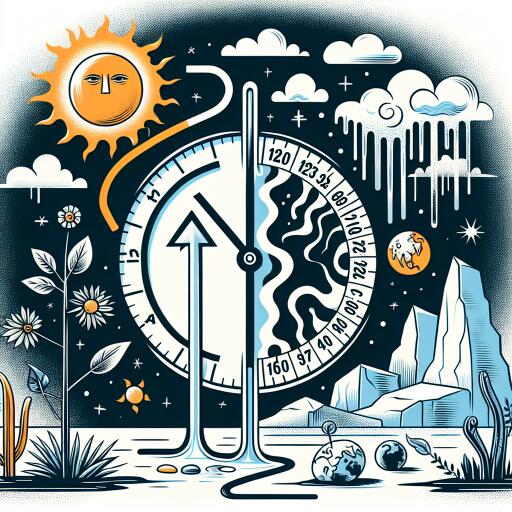
Having A Long Day? Blame Climate Change
The unprecedented melting of the world’s ice caps is not just raising sea levels but is also subtly lengthening the days on Earth, with far-reaching consequences for the precision-dependent systems of our modern world. From the synchronization of GPS satellites to the stability of global communication networks, the impacts of this phenomenon touch the underpinnings of daily life. New scientific insights reveal how climate change-driven ice loss is reshaping our planet in more ways than one.
Research has illuminated a startling change in Earth’s physical dynamics, where the accelerated melting of ice in regions like Greenland and Antarctica is adding milliseconds to the length of a day. This change, albeit minor, has the potential to disrupt critical systems that rely on exact timing, including GPS navigation, financial transactions, and the management of electric power grids. It’s a domino effect that underscores the broad and unexpected repercussions of climate change.
Investigators have pinpointed a concerning acceleration in Earth’s rotational slowdown over recent years, a phenomenon significantly influenced by human activities. Such alterations could, over time, necessitate adjustments in space navigation and even conventional timekeeping. The interplay between melting ice caps, the redistribution of Earth’s mass, and alterations to its shape and rotation presents a complex scenario for scientists to unravel.
As ice melts and water shifts from polar regions towards the equator, Earth’s distribution of mass becomes more oblate or wider at its center. This redistribution is akin to a figure skater extending their arms mid-spin, slowing their rotation due to the increased moment of inertia. Such changes have subtle yet measurable effects on the duration of a day.
Moreover, the displacement of ice mass not only affects Earth’s rotation but also its axis. As detailed in groundbreaking studies, this shift can have ramifications reaching deep into the Earth’s core, affecting its dynamics. While the implications are not immediate or catastrophic, they reflect a previously underestimated scope of climate change’s impact on our planet’s fundamental physics.
The urgency in understanding these changes is underscored by their potential to complicate space missions and accurate timekeeping. The precision required for interplanetary navigation means even slight deviations in Earth’s rotational behavior can translate into significant errors over astronomical distances. The conversation around these findings also brings into focus the rate at which our days are lengthening, a subtle yet profound signal of climate change’s grip on the planet.
Historical data juxtaposed with recent studies suggests that the rate of day-lengthening has surged to levels unprecedented in thousands of years, with projections indicating an enduring and possibly escalating trend. The implications of this acceleration extend into the realm of timekeeping, challenging the established mechanisms for maintaining global time standards. The occasional addition of a ‘leap second’ to the Coordinated Universal Time (UTC) system underscores the growing discrepancy between atomic time and solar time, hinting at the deeper interferences of climate change.
The reliance of contemporary infrastructure on precise timekeeping amplifies the significance of these findings. A future where leap seconds become more frequent presents a litany of challenges for technology sectors, where even minor disruptions can lead to significant service outages. This evolving scenario demands a reevaluation of how we measure and manage time, further entwining the fields of environmental science and technology.
In conclusion, the melting of polar ice sheets serves as a stark reminder of the multifaceted impact of climate change, reinforcing the necessity for immediate and decisive action. As the planet witnesses shifts in its very rotation, the interconnectedness of environmental health and technological stability has never been more apparent. The challenge lies in adapting to these changes, safeguarding the systems that underpin modern civilization, and mitigating the root causes of climate change.





Leave a Reply